A Global Effort: Planting Trees Beyond Tu Bishvat
Volunteers from around the world honor heroes by planting trees, not just on Tu Bishvat. Thousands are helping agricultural farms devastated by war. "This is our calling," says Berachia Rosenberg from 'Connections in Agriculture'.
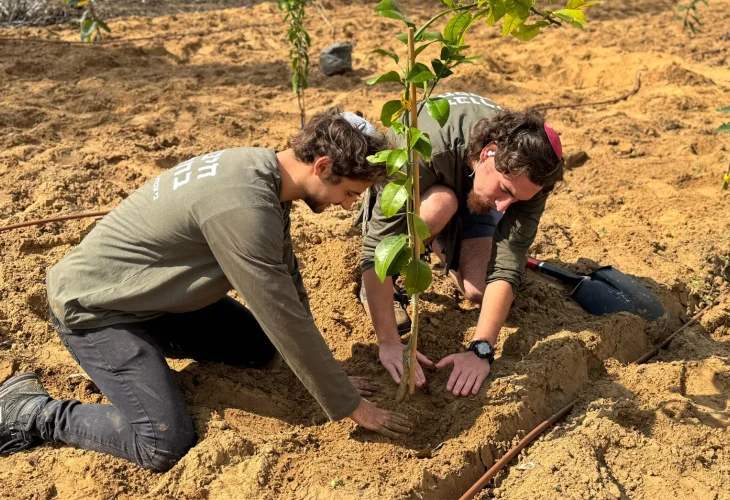 (Photo: Connections in Agriculture)
(Photo: Connections in Agriculture)Some events are impossible to ignore. Today's event at Kibbutz Kerem Shalom was one such event: a long convoy of volunteers arrived specifically to plant an orchard in memory of Yedidya Raziel and Amichai Witzen, may their memories be blessed, members of the emergency response team who were killed defending the kibbutz during a heroic battle on Simchat Torah 5784.
Joining the volunteers at the planting was Shira Raziel, Yedidya's wife, along with youth from the United States who came to Israel specially to attend a pre-army program. The trees were donated by students from 'Da'at Torah Academy' in Colorado, who wanted to contribute to the reforestation efforts in Israel.
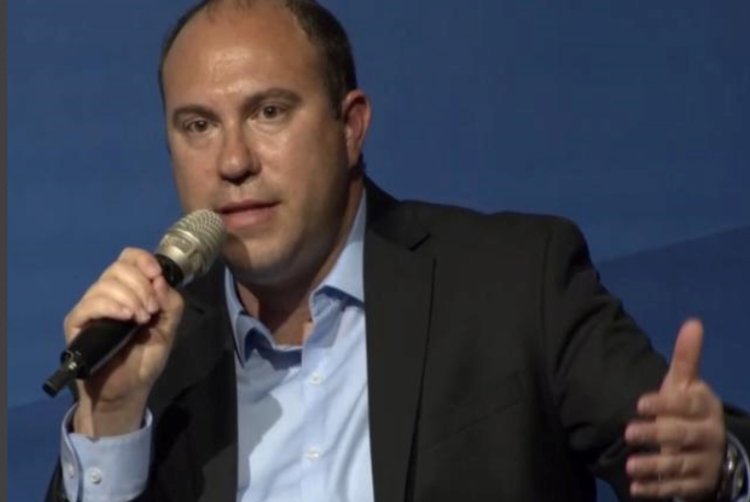 Berachia Rosenberg, CEO of 'Connections in Agriculture'
Berachia Rosenberg, CEO of 'Connections in Agriculture'Berachia Rosenberg, CEO of 'Connections in Agriculture' who initiated this tree-planting event, expresses his excitement. "Planting trees is not merely a technical action," he clarifies, "It symbolizes our continuity and our existence here in the Holy Land. Kerem Shalom is not the only place where Tu Bishvat planting took place, and we aim to plant wherever possible across the country because these are our roots and the continuity of the Jewish people on its land."
Planting, Commemorating, Connecting
'Connections in Agriculture' was established six years ago, with a desire to support farmers nationwide. "The organization was founded by people of Torah and agriculture in the Beit She'an area," explains Rosenberg. "Initially, they gathered volunteers and connected them with farmers in need of assistance, yet since the Iron Swords War began, the needs of the agricultural community increased significantly. Many Thai workers left, creating a severe shortage in skilled labor. Some farms were inaccessible due to military restrictions, and a large number of farmers were drafted through emergency orders, exacerbating the challenges. That's when we understood this was the historic moment for our organization, and it was our role to respond. We had to act for the needs of the hour and help those farmers, and therefore we rose to the occasion with all our might."
How did you do it?
"We managed to recruit tens of thousands of volunteers in a short time, providing assistance to many agricultural farms. Since the war erupted, our organization has been gaining momentum. We now have groups of thousands of regular volunteers from schools, pre-military programs, and yeshivot who volunteer on farms weekly.
"Teachers and staff at schools incorporate this activity as part of trips or volunteer expeditions. The students immensely enjoy it and gain much in terms of work ethics and connection to the land of Israel. These are things you cannot feel from afar; you have to get your hands dirty in the soil.
"Among our volunteers," Rosenberg continues, "there are also private families who regularly come with their children, including small children who can help, and quite a few elderly people who are over 80, but continue to assist, each according to their ability. Personally, it's thrilling to see volunteers coming from all over the country and the world, from all sectors of the Jewish community – proving that when it comes to kindness and volunteering, your specific community doesn't matter because everyone wants to give and contribute."
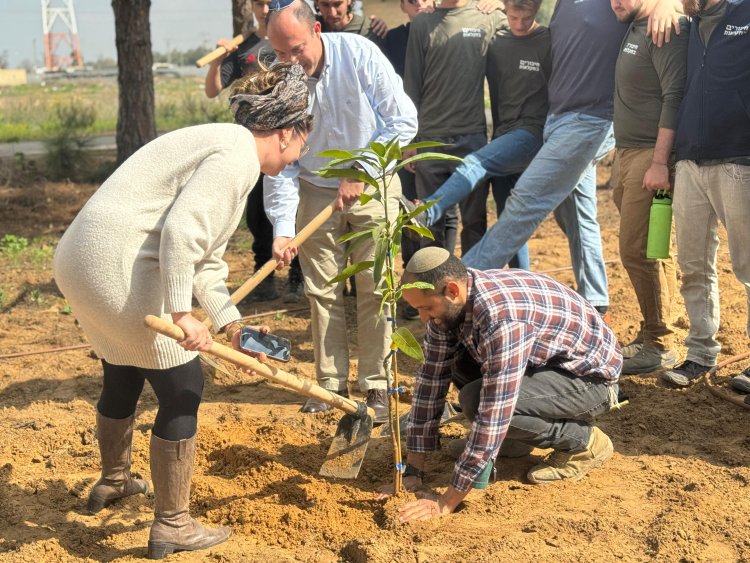 (Photo: Connections in Agriculture)
(Photo: Connections in Agriculture)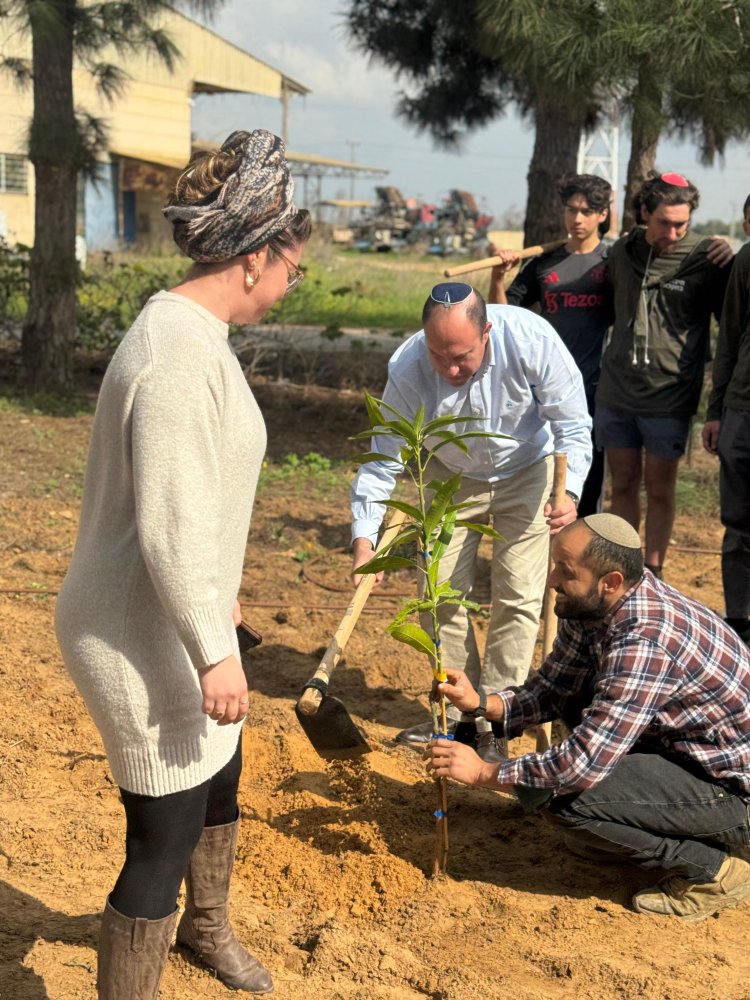 (Photo: Connections in Agriculture)
(Photo: Connections in Agriculture)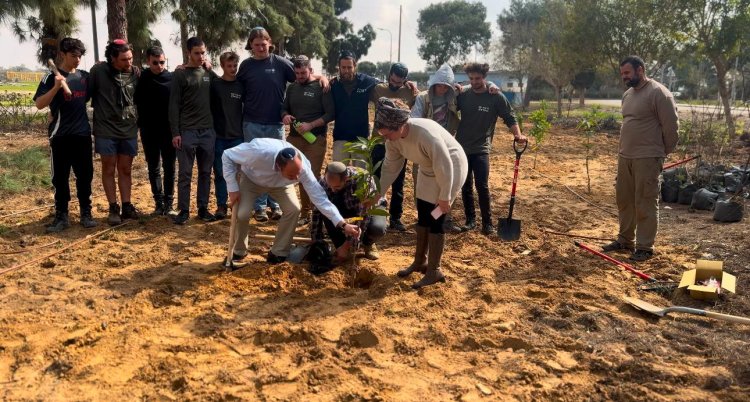 (Photo: Connections in Agriculture)
(Photo: Connections in Agriculture)Innovative Technologies
Even now, the organization’s volunteers have their hands full, while also working to provide financial support to farmers. "We succeeded in partnering with 'Bank Ogen,'" he shares, "a social bank offering farmers very low-interest loans, not for profit, but to help them through tough times, offering mentorship and business guidance, which significantly benefits the farmers, as agriculture is ultimately a business."
What are your future plans?
"We have many plans, intending to continue offering farmers support, focusing on acquiring innovative technologies from the high-tech world, which we believe can definitely increase productivity and efficiency in the agricultural farms that have been through tough times and now deserve to rise, thrive, and flourish."

